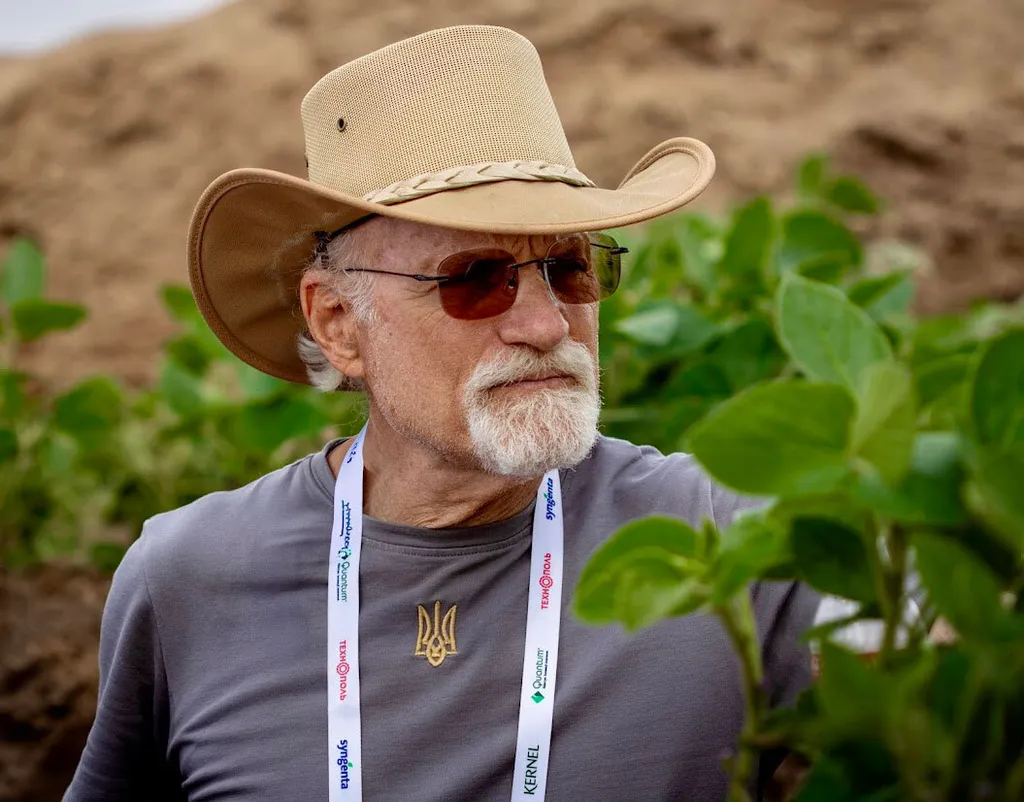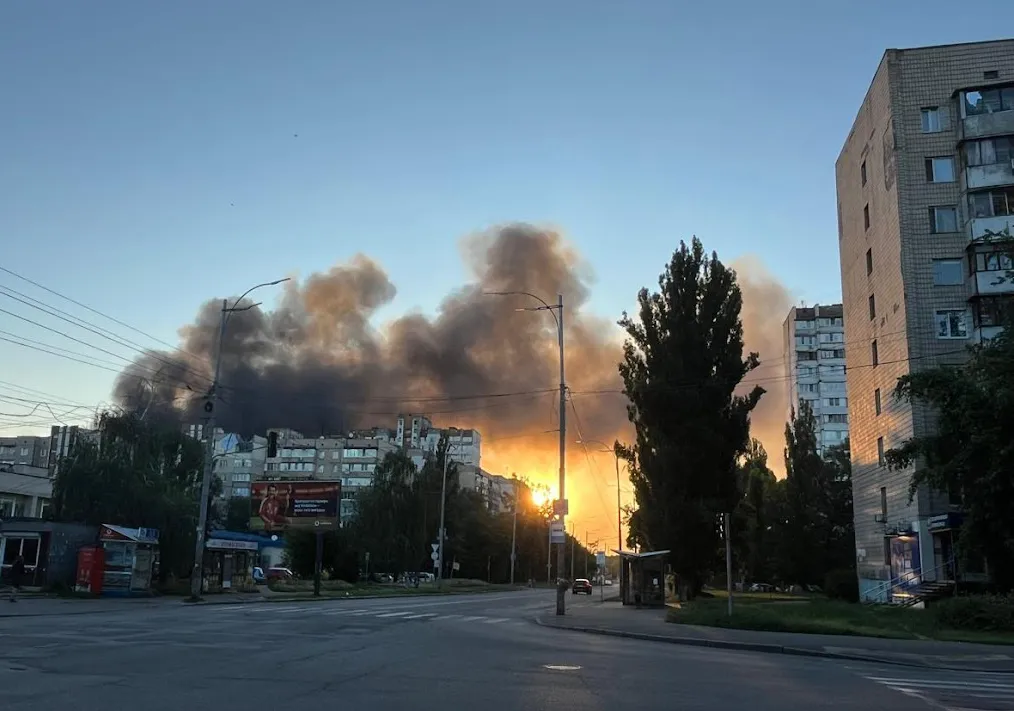- September 22, 2025
- By Kimbra Cutlip
Russia’s 2022 invasion of Ukraine didn’t just kill people and destroy infrastructure. The nation’s rich, black soil—one of the world’s most fertile sources of food—also fell under threat as fighting, unexploded ordnance and other environmental contamination took wide swaths of farmland out of commission and put higher demands on remaining fields than ever before.

Now a University of Maryland soil scientist is lending his expertise so the country can protect and improve this precious resource. Ray Weil, a professor in the Department of Environmental Science and Technology, spent three weeks in war-torn Ukraine over the summer advising a new generation of farmers on regenerative agriculture, cover crops and soil health.
Along with an international team of agricultural experts, he visited a dozen farms across the country, the largest of which has about as much cropland as the entire state of Maryland. Some nights Weil fell asleep to the sounds of distant anti-aircraft fire, or awoke in the darkness to run to a bomb shelter.
Despite the difficult conditions, dozens of farmers turned out for his “soil pit talks,” each given at a hole that a farmer had excavated prior to his arrival. His presentations covered how to evaluate the soil, and how current and past management had affected the soil profile characteristics, and suggested practices that could improve soil health, specifically on that farm.
At a two-day conference held at the end of the field tour, “I had hundreds of people around one pit,” he said. “I’d never experienced that before. There was so much interest.”
Ukraine is a leading supplier of the world’s wheat, corn, barley and sunflower, and agricultural products account for more than 40% of Ukraine’s export earnings. The new stresses and limitations imposed by the war mean Ukrainian farmers are eager to modernize their farming methods; that means buying the latest variable-rate precision application equipment, optimizing their operations and increasing productivity on their land.

In addition to the ravages of war, Ukrainian farmlands have been degraded over the years by industrial farming practices like large monoculture (continually growing the same crop across a broad area), aggressive tilling and little use of cover crops to protect and recharge soils in the off-season, Weil said.
“Their soils have suffered from erosion, compaction and loss of organic matter. Regenerative farming recognizes that soils need to be covered as they are in nature, not left bare,” he said. “Adoption of practices like strip-till or no-till and planting multispecies cover crops can protect the soil, add diversity, and return nutrients and carbon to the earth.”
Many Maryland farmers have embraced these practices, which Weil has been sharing with farmers across the U.S. and around the world for decades. But they’re relatively new in Ukraine, which developed its agricultural sector under Soviet rule, in which farms were huge government-owned collectives with centralized, inflexible top-down management. The imprint of that system remains today; the ability to privately buy and sell farmland was established in Ukraine only six years ago.
A surprising feature of Weil’s talks was that his audience was mostly young and relatively new to farming, in part because older men tended to be on the front lines fighting while the young people stayed behind to work, marry and have children.
“Several young farmers proudly showed me photos on their phones of their fathers in the trenches defending the country,” he said. “Many of these young farmers didn’t grow up on a farm, (and) their fathers weren’t farmers.”
From the scale of the farms to the resilience of the people and the eagerness of the farmers, Ukraine made a significant impression on Weil, who has been keeping in touch with the people he met through regular Zoom calls. He is applying for grants to continue the work there and hopes to return to the country soon.
“To me, it was an application of knowledge that really has an impact on a variety of levels,” Weil said. “It was a real opportunity to put our science to use for good.”
Weil snapped an image of smoke rising from the aftermath of a Russian attack in Kyiv, Ukraine's capital, in July.
Terps Do Good
The University of Maryland is the nation's first Do Good campus, committed to inspiring Terps to make a positive impact now through research, public service and education. See more stories about Terps doing good at today.umd.edu/topic/do-good.
